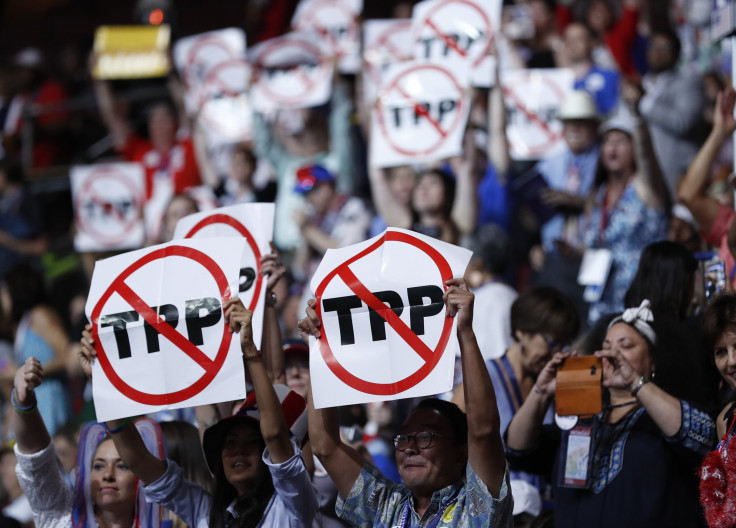What Is Trans-Pacific Partnership? US To Quit Trade Agreement On President-Elect Trump’s First Day In Office

President-elect Donald Trump announced Monday that the United States will quit the Trans-Pacific Partnership (TPP) trade deal on his first day in the White House, in a video posted on YouTube.
Calling the deal “a potential disaster for our country,” Trump, who has been vehemently against the ratification of the trade agreement, said he would “negotiate fair bilateral trade deals that bring jobs and industry back.”
The country’s exit from the TPP could spell doom for the deal and Japan’s Prime Minister Shinzo Abe has warned that the partnership would be “meaningless” without active U.S. participation, just hours before the president-elect made the announcement.
Here is all you need to know about this controversial trade agreement that was undertaken by President Barack Obama but has faced opposition within the country:
What is the Trans-Pacific Partnership?
The TPP is a controversial trade agreement that covers 12 countries bordering the Pacific Ocean — the U.S., Japan, Malaysia, Vietnam, Singapore, Brunei, Australia, New Zealand, Canada, Mexico, Chile and Peru.
Negotiations closed in October 2015 and the formal agreement — published in November 2015 — looks at reducing trade barriers like eliminating certain tariffs for the signatories while setting standards for their economic dealings with each other, aimed at potentially creating a new single market, like the European Union.
The deal also includes stricter labor and environmental rules along with legal protections for drug companies and higher copyright protection.
How big is it?
The deal covers almost 40 percent of the world’s economy as the 12 countries have a collective population of almost 800 million. This number is almost double of EU’s market.
However, for the agreement to materialize, all member states need to ratify, a move that will receive a severe blow if Trump goes through with his promise of pulling the U.S. out of the deal.
What’s the controversy?
President Obama has laid immense stress on trade deals but critics of such an agreement say the TPP lacks transparency and favors big businesses and other countries, compromising the U.S. national sovereignty and jobs.
Trump and Vermont Sen. Bernie Sanders, representing both sides of the political spectrum, have used the primary races in the 2016 election cycle to voice their reservations regarding the deal. Clinton, who was once for the TPP, also pulled her support during the primaries.
Trade deals like these are being blamed for companies outsourcing jobs to other countries, with American workers losing out to countries with lower cost of labor.
The full text of the agreement can be read here.
© Copyright IBTimes 2024. All rights reserved.






















